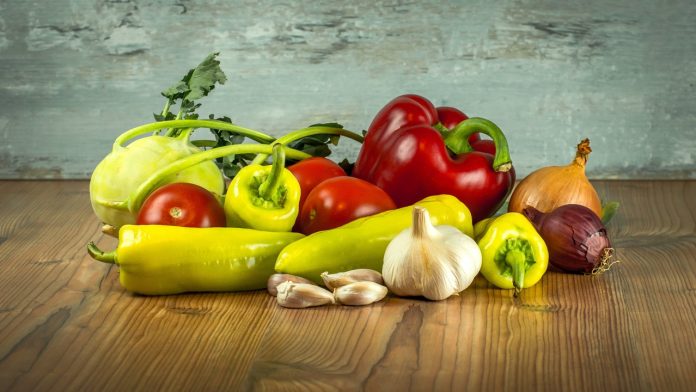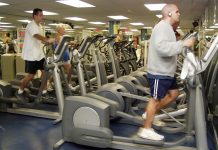
A variety of the 6 food groups from the My Plate would be OK to eat 2 to 4 hours before exercising. High fat or high sugar foods would not be recommended nor would a large meal be a good idea. A mixed meal of carbohydrates, protein, and fat could take up to 6 hours to digest then absorb. Large meals can also make you feel sleepy because your blood is pooling around your intestines not your brain during while food is being absorbed. Have you ever felt tired after eating a big meal, especially one high in fat or sugar?
The when to eat also affects what to eat. It is best to eat more than 2 hours, but less than 4 hours before exercise. Carbohydrates (grains and fruits preferably) take 2 hours to digest and absorb. Blood pools around your intestines for up to 2 hours after a carbohydrate meal, so your body can absorb the nutrients from the food you ate. During that time, there is less blood in your legs and arms to power physical activities. After 2 hours, glucose (from food carbohydrate) absorbed into your blood will be available as fuel for exercise. Fruits especially fruit juices can provide glucose in your blood in as little as 15 minutes but are too concentrated to consume during most physical exercises other than running long distances where a lot of calories are being burned
Your body prefers to run on the sugar (glucose) in your blood and during exercise. Your body draws on stored muscle glycogen for fuel. Carbohydrates like bread, potatoes, pasta, rice, cereal, crackers (starch), fruit or fruit juice are good foods to eat before exercise as they quickly break down into glucose.
Another important food to eat before and during exercise is water. Drink at least 2 cups of cold water before exercise and 1 cup each hour. If the temperature or humidity where you are exercising is high and you are breaking a sweat, you will need to increase your water drinking especially when humidity prevents sweat used to cool your body is not drying. If you are unsure of how much water to drink, you can weigh yourself before and after exercise while drinking liberally during exercise. For every 1 pounds of weight loss after exercise, you will need an additional 2 cup of water to rehydrate.
After exercise, these same carbohydrates quickly replace muscle glycogen your body used during exercise. When a person chooses to eat after exercise is a personal choice depending on intensity and length of exercise. Carbohydrates would help refuel glycogen in muscles.



